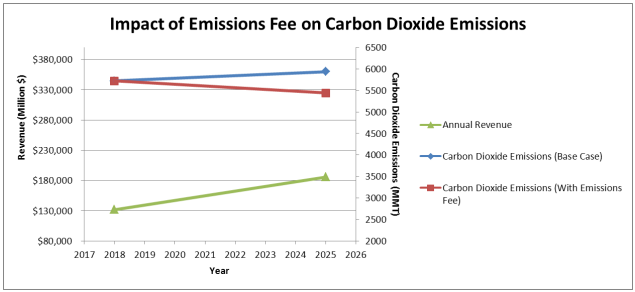A new report by the American Council for an Energy-Efficient Economy (ACEEE) makes six recommendations for tax reform that will promote energy efficiency and boost the domestic economy. ACEEE argues that its reform recommendations will remove barriers to efficiency investments, help all energy sources compete on a level playing field, allow U.S. businesses to better compete internationally, and grow the domestic economy. The U.S. has the potential to save more than half of the energy it consumes through efficiency measures. Reforming tax policy will allow homeowners, businesses, and factories to realize these savings, reducing their energy bills and growing the domestic economy through tax receipts and job creation.
The report’s first recommendation calls for a refinement of depreciation periods for energy equipment and systems to more accurately reflect their average service lives. If energy products are assigned depreciation values higher than their actual lifetime value, businesses will be discouraged from replacing them with new, efficient products in an effort to avoid writing off the un-depreciated value. Accurately representing depreciation values will remove the perverse incentives limiting the adoption of energy efficient products. Since businesses’ energy costs are tax-deductible, the government is essentially paying a portion of commercial energy bills, equaling up to 35% of a business’ energy bill. Shifting to a tax on revenues instead of a tax on profits would effectively remove the energy bill tax deduction.
ACEEE’s report also states that leveling the playing field for efficiency measures would require both adding a price on carbon emissions and creating tax incentives for energy efficiency. Taxing emissions would force polluters to pay for the external costs of energy consumption, thus encouraging them to reduce their emissions. Reducing or eliminating fossil fuel subsidies would also allow energy efficient products to better compete in the market. These subsidies currently cost government $12-13 billion each year. The report suggests maintaining subsidies only for advanced technologies that could benefit from temporary incentives until they are integrated into the market.
ACEEE recommends offering temporary tax incentives for energy efficiency and increased capital investments in manufacturing to boost the competitiveness of U.S. businesses and the economy at large. Tax incentives can be used to promote energy-saving technologies, such as efficient appliances, new homes, commercial buildings, and home retrofits, until they are commercially viable. Additionally, low-cost capital investment in manufacturing can be encouraged with several new tax strategies. This would enable factories to implement the newest and cleanest technologies, allowing them to better compete in a world market, improve product quality, and reduce production costs.
Implementing these six recommendations has the potential to significantly impact the U.S. economy. ACEEE estimates that new tax policy would create approximately 164,000 jobs between 2014 and 2030. While federal Treasury costs would be about $13.3 billion in the first five years, revenue from tax receipts would greatly outweigh these costs and result in a net gain of $28.7 billion in federal tax receipts over that time period.
Sources: Feature image courtesy of decoist. Graph courtesy of ACEEE report.

